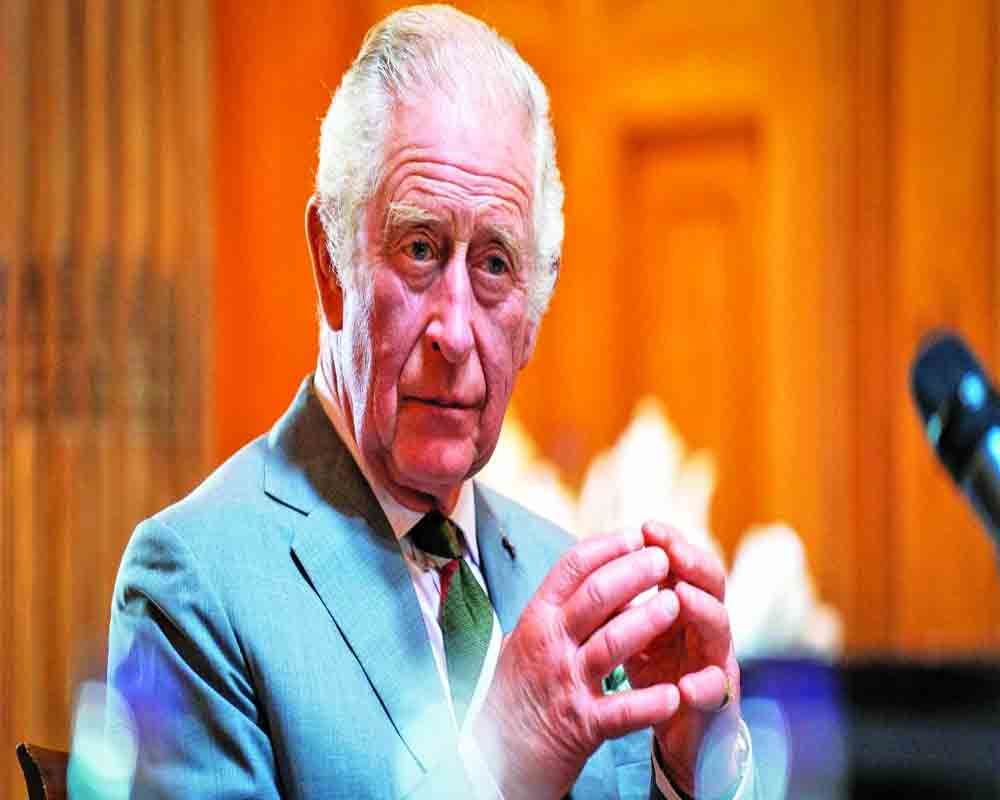The English monarchy has had a long chequered history. Here are a few pointers to navigate through its labyrinthine past in the United Kingdom
Obviously, the answer to this question would be that England had kings earlier, known as Charles I and Charles II. Maybe, only those interested in history, more specifically English history, might like to know. After all, was history not called "bunk" by someone!
Be that as it may, if one happens to pass by Scotland Yard, London, on 30th January, one may notice a strange sight. Some people, posing as Royalists, pay homage to the memory of a king who was decapitated here. That is the last time an English monarch was executed. He was King Charles I, who ruled from 1625-1649, having succeeded to the English throne after the demise of his father, King James! of England, earlier James VI of Scotland belonging to the Stuart dynasty.
Charles I faced an ever-assertive English parliament that had begun challenging the Divine Right theory of Kingship. The growing opposition from the Puritans who held a dominant position in the House of Commons was caused by the royal demands regarding taxation, his marriage with the French princess Henrietta Maria, a Catholic, and his pro-Spanish bias in the conduct of foreign policy. In the post-Reformation period in England, set in motion by the Tudor King Henry VIII (1509-1547), Catholics were suspected of disloyalty to England being supporters of the Catholic Pope.
As differences continued to grow without any sign of compromise from Charles I, matters came to a head. The Commons asserted its constitutional rights by the Petition of Rights ( 1628), also passed by the Lords- which achieved some notable objectives by putting restrictions on the arbitrary exercise of royal power- martial law, billeting of soldiers, taxation, and imprisonment. Henceforth, no English king could ever become a military dictator, billeting of soldiers in a private house was banned and court martial for civilians was banned. No wonder, the Bill of Rights is called the 'Charter of the most civilian nation of Europe.'
As frictions continued, James dissolved the Parliament and for the next 11 years, England was ruled by the king without the Parliament. This period of personal rule by Charles I (1629-1640) came to be called the "Eleven Years tyranny". Judging by the contemporary European standard of absolute rule, one can say that it was not that tyrannous. When the parliament was again called in 1640, it did not last long . This was followed by the Civil War (1642-49), and royalists lost it to the Parliamentarians. This is when King Charles was executed and England was then ruled without parliament for eleven years (1649-1660). That was the time when Oliver Cromwell ruled. This was the time when the two terms came into use- Cavaliers (Royalists) and the Roundheads (parliamentarians).
As Richard Cromwell turned out to be a failure (1658- 1660), there was a general consensus that the Republic had failed, and England could not be run without a King. The Convention parliament, so called because it was not summoned by a King, voted for the return of the King and two houses - Lords and Commons that is when the son of the previous king of England was asked to take over. Known in history as Restoration - Charles II, came over to London, and entered the Banqueting Hall close to the scaffold where his father had been executed.
Charles II, the son of a French princess ( 1660-1685), having decided that 'he would not go on his travels again', ruled with the approval of parliament, unlike his Stuart and Tudor predecessors. Charles II pardoned the Roundheads but those involved in the execution of his father- about ten of them were duly put on trial and executed. A friend of the king had summed up his character:
Here lies our sovereign lord the king, Whose word no man relies on,Who never said a foolish thing? Nor ever did a wise one.
Despite their renewed faith in royalty, they despised the very concept of a standing army, and would not permit it anymore. During this time, the two older political groups came to be called the Tories (later Conservatives) and Whigs (later Liberals) marking the beginning of the two-party system in Britain. Originally Tories meant a rebel Irish Papist, and Whigs- a rebel Scottish Presbyterian! Another landmark decision was the Habeas Corpus Act passed in 1679 which provided that no British subject should be arrested without being brought to a trial- which provided the model for similar legislation in many countries. In the world of ideas, much happened in the 17th century. Francis Bacon, the great thinker, and essayist passed away, and despite the Bible remaining as an "unchallenged fount of truth", it had the likes of William Shakespeare, Ben Johnson, John Donne, and Milton. This was also "an era of science" with the likes of Gilbert, Boyle, and Newton with their innovative ideas and immortal creations.
(The author wrote the foreign policy content of the BJP, when its first website was launched in 1998. Currently, he is a Member, ICHR. The views expressed are personal)


























